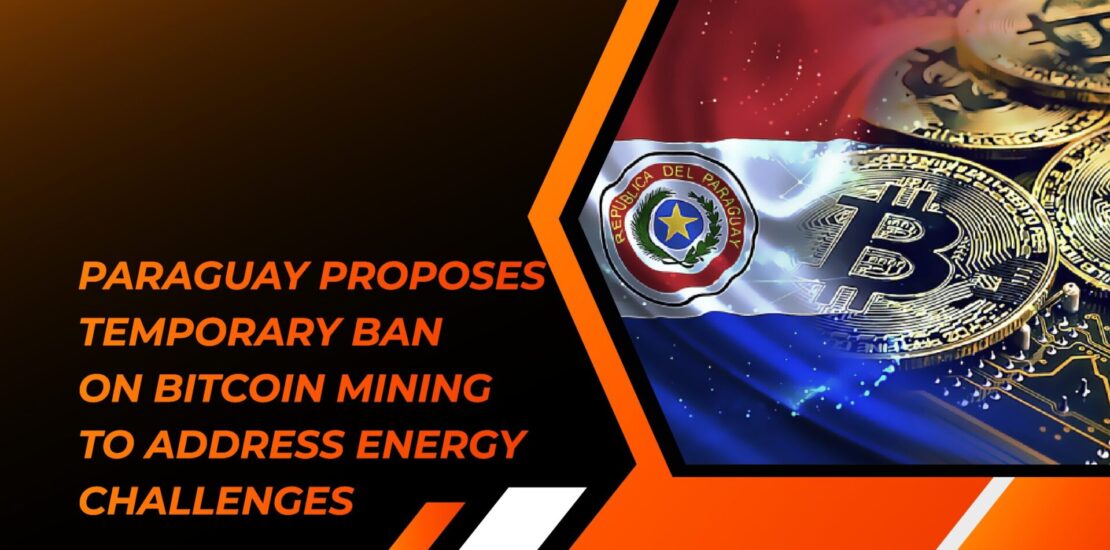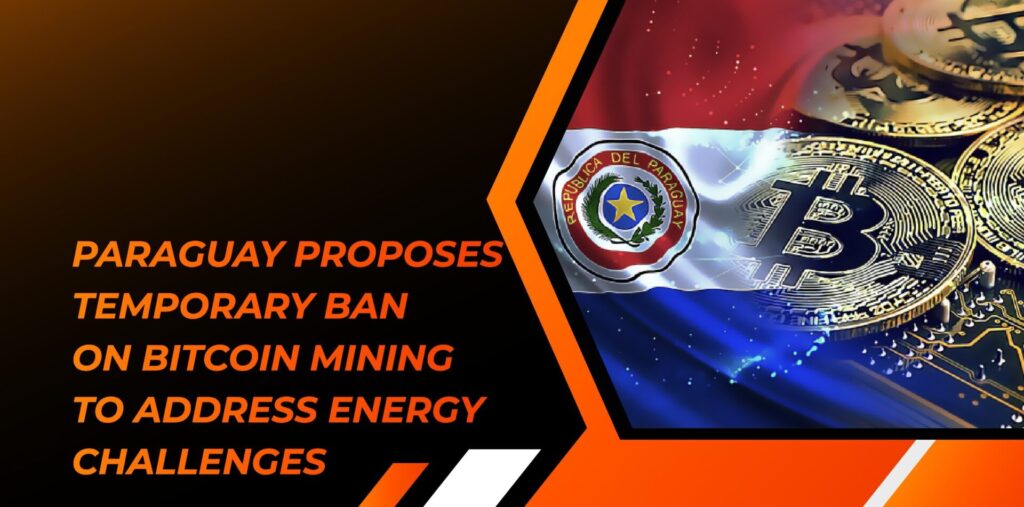- April 5, 2024
- Posted by: [email protected]
- Category:


In response to mounting concerns over the impact of Bitcoin mining on Paraguay’s energy infrastructure, a coalition of lawmakers has tabled a bold proposal aimed at temporarily suspending mining activities within the country. The move comes amidst reports of escalating strain on the nation’s power grid and concerns regarding the exploitation of Paraguay’s abundant hydroelectric resources by cryptocurrency miners.
The bill, introduced on April 4 by fourteen Paraguayan senators, represents a concerted effort to address the complex interplay between crypto mining and energy consumption. Central to the legislators’ argument is the assertion that crypto miners are taking undue advantage of Paraguay’s comparatively low electricity tariffs, drawn to the nation’s favorable conditions for energy-intensive operations. With the proliferation of mining farms across Paraguay’s landscape, concerns have emerged regarding the sustainability of this burgeoning industry and its potential repercussions for the stability of the national power supply.
While previous attempts to regulate the crypto mining sector have been made, including the Senate’s approval of a regulatory bill in July 2022, which was subsequently vetoed by the president, the urgency of the situation has prompted renewed action. The proposed ban, slated to last for 180 days or until a comprehensive regulatory framework is established, seeks to provide a breathing space for authorities to devise robust measures to govern crypto mining activities effectively.
Crucially, the legislators emphasize the need for a balanced approach that safeguards both the integrity of Paraguay’s energy infrastructure and the nascent crypto industry. By imposing temporary restrictions on mining operations, the aim is to mitigate the strain on the national power grid and prevent further financial losses incurred by the state-owned National Electricity Administration (ANDE) due to rampant energy theft associated with unauthorized mining activities.
The bill underscores the gravity of the situation, citing alarming statistics of energy theft and estimated financial damages inflicted by clandestine crypto farms. The staggering figures paint a stark picture of the magnitude of the problem and underscore the imperative for decisive action. If left unchecked, the unchecked proliferation of illegal mining operations could have far-reaching consequences for Paraguay’s economic stability and energy security.
In proposing this temporary ban, Paraguay’s lawmakers are sending a clear message: the responsible development of the crypto industry must be predicated on sustainable practices and regulatory oversight. By striking a balance between innovation and environmental stewardship, Paraguay seeks to chart a path forward that ensures the long-term viability of both its energy sector and the burgeoning crypto economy.



